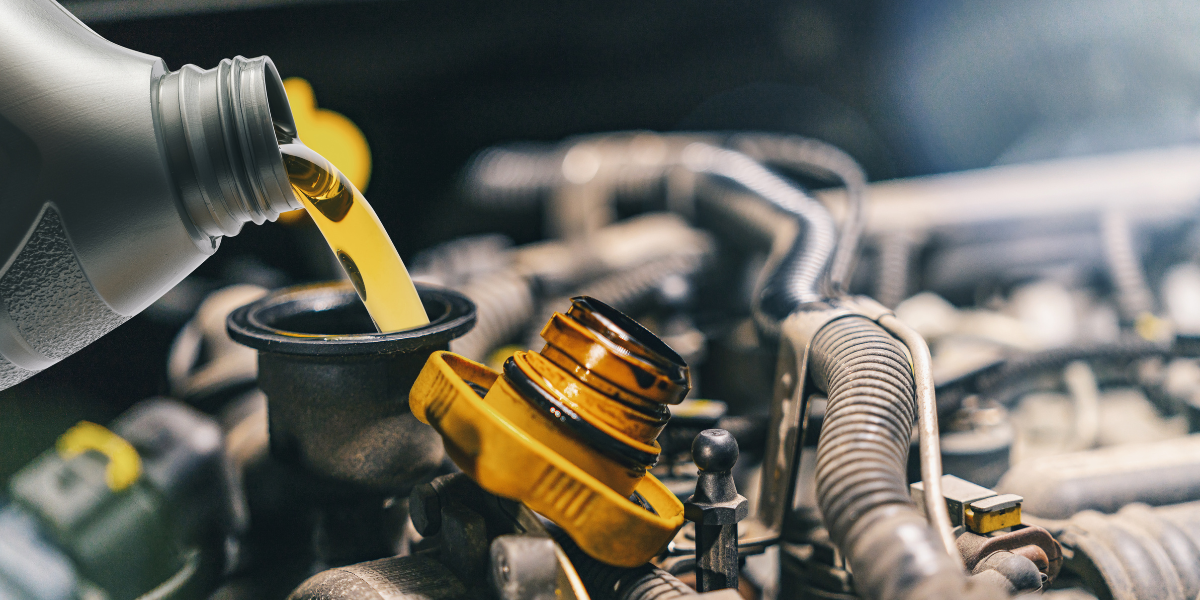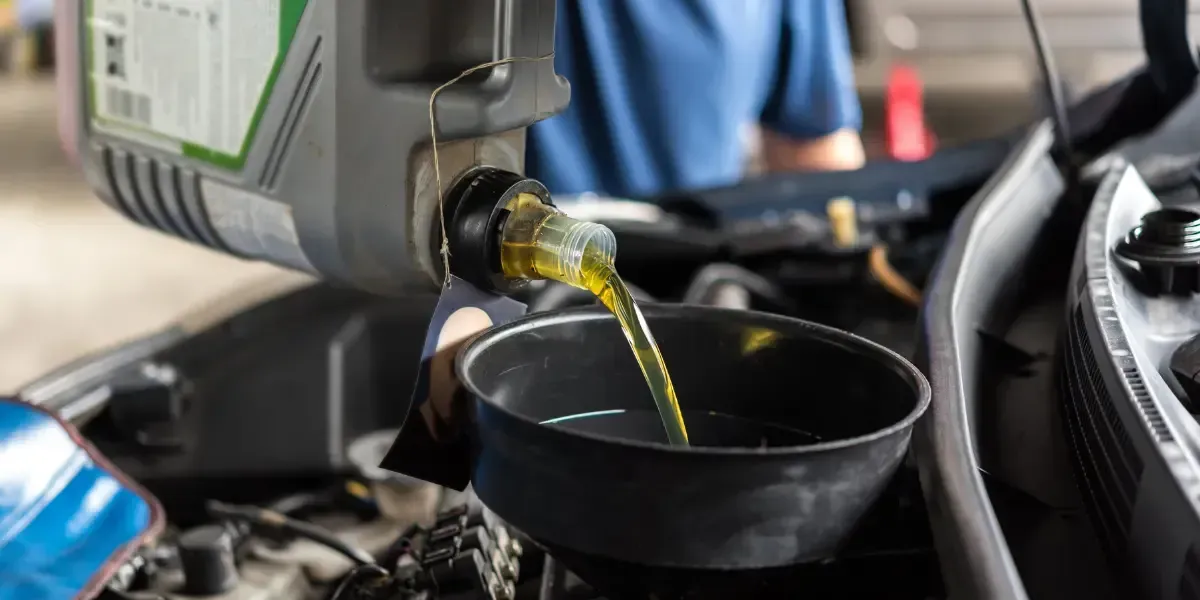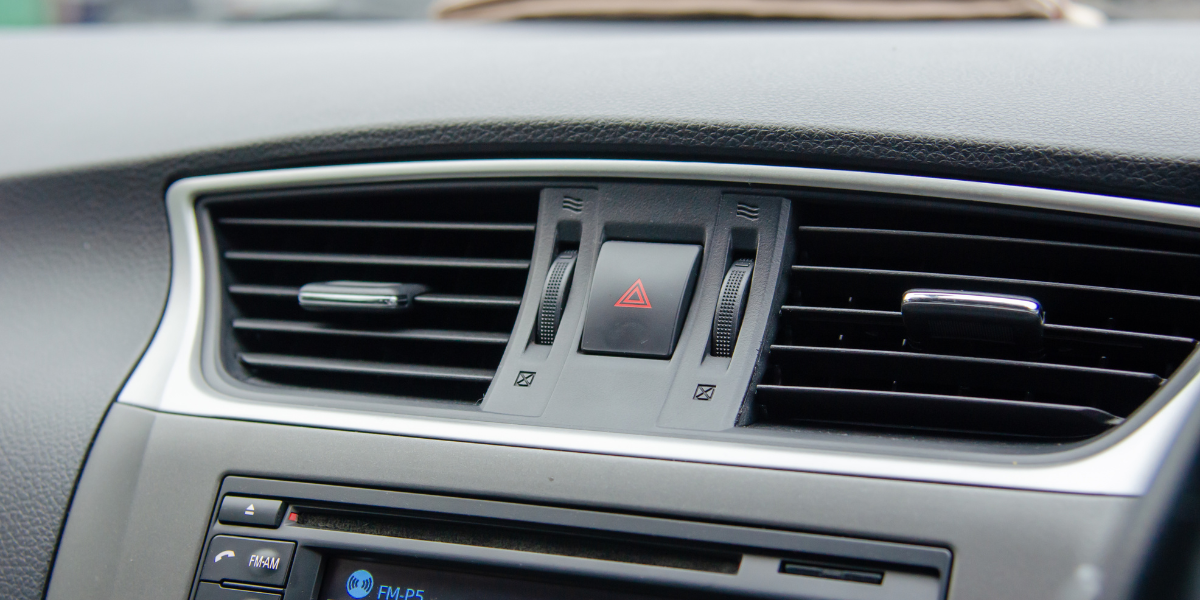How Long Can You Go Without an Oil Change? What Car Owners Should Know
We’ve all been there—life gets busy, and next thing you know, your car’s oil change is long overdue. But how long can you really go without an oil change? It's a common question among car owners, especially with the advancements in modern vehicles.
While skipping an oil change may seem harmless, it can lead to significant engine damage if you wait too long. In this article, we'll explore the role of engine oil, the risks of skipping changes, and
how long you can go without an oil change.
Key Takeaways
- Finding common problems like refrigerant leaks, condenser issues, and compressor failures can help you fix the main cause of a broken car AC.
- Fixing air flow blockages and electrical problems can also get your vehicle's cooling system working again.
- Dealing with AC problems before the summer heat comes can save you from being uncomfortable and avoid safety concerns.
- Knowing the risks of driving without a working AC, like dehydration or issues with battery cooling, shows why quick repairs are important.
- Getting help from a professional for tricky AC repairs can make sure you get a long-lasting solution and avoid more problems.
What Does Engine Oil Do?
Engine oil plays a crucial role in keeping your vehicle running smoothly. Without it, the various moving parts in your engine would grind against each other, causing friction and overheating.
Lubricating Engine Parts
Oil creates a slick barrier between metal components, preventing wear and tear on essential engine parts.
Reducing Heat and Wear
As your engine runs, it generates a significant amount of heat. Oil helps to absorb and dissipate this heat, ensuring that your engine doesn’t overheat.
Cleaning and Preventing Sludge Buildup
Over time, dirt and debris can accumulate in your engine, leading to sludge formation. Oil helps keep the engine clean by carrying these particles to the oil filter.
The Typical Oil Change Interval
Back in the day, mechanics swore by the 3,000-mile rule, but times have changed.
The 3,000-Mile Rule: Is It Still Relevant?
For older vehicles and conventional oil, this rule of thumb was solid advice. However, modern vehicles and synthetic oils have shifted the landscape.
Modern Vehicles and Extended Oil Change Intervals
Many newer cars can safely go 7,500 to even 10,000 miles between oil changes, thanks to advances in oil formulations and engine technology.
Manufacturer Recommendations
Each vehicle is different, so it’s crucial to check your owner’s manual for the manufacturer’s recommended oil change interval.
Factors That Influence How Long You Can Go Without an Oil Change
Several factors can affect how long your engine oil will last.
Type of Oil Used (Synthetic vs. Conventional)
Synthetic oils generally last longer than conventional oils, offering better protection over extended periods.
Driving Conditions (City vs. Highway)
Stop-and-go city driving is harder on your engine than highway driving. If you mostly drive in the city, your oil may degrade faster.
Age and Condition of Your Vehicle
Older vehicles with worn engines may require more frequent oil changes, even if you use high-quality oil.
How Long Can You Go Without an Oil Change?
While pushing your oil change a bit past the recommended interval may seem harmless, it's important to know the risks.
The Danger Zone: Pushing Past the Recommended Mileage
Going 1,000 or even 2,000 miles over your recommended oil change interval might not cause immediate harm, but it starts to degrade your engine’s performance.
What Happens if You Wait Too Long?
If you wait too long between oil changes, the oil can become too dirty or thin to provide adequate lubrication, leading to engine wear, overheating, and even complete engine failure in extreme cases.
Signs You’re Overdue for an Oil Change
If you’re not sure whether your car needs an oil change, keep an eye out for these warning signs.
Dashboard Warning Lights
Most modern cars are equipped with oil change reminders or check engine lights that will alert you when it’s time for an oil change.
Unusual Engine Noises
If your engine is making knocking or grinding noises, it could be a sign that the oil is no longer doing its job.
Dark or Dirty Oil
When checking your oil, if it appears dark or gritty, it’s time for a change.
Decreased Fuel Efficiency
Old, degraded oil forces your engine to work harder, which can lead to lower fuel efficiency.
How to Check Your Oil and When to Add More
Checking your oil is easy and can help you stay on top of your car’s maintenance.
Step-by-Step Guide to Checking Your Oil
- Turn off the engine and wait for it to cool.
- Locate the oil dipstick and pull it out.
- Wipe it clean, reinsert it, and pull it out again.
- Check the oil level and color.
- If the oil level is low, add more oil.
When and How to Add Oil
If your oil level is below the recommended line, add oil slowly, checking the level periodically to avoid overfilling.
The Consequences of Skipping Oil Changes
Skipping oil changes can have serious consequences for your engine.
Increased Wear on Engine Parts
Without proper lubrication, the metal components in your engine will wear down faster, reducing its lifespan.
Risk of Overheating
Oil helps keep your engine cool, so when it’s old or too low, your engine could overheat.
Engine Sludge and Long-Term Damage
Neglected oil turns into sludge, which can clog your engine and lead to long-term damage that requires expensive repairs.
Can You Go Longer with Synthetic Oil?
Synthetic oils are designed to last longer and perform better under extreme conditions.
Why Synthetic Oil Lasts Longer
Synthetic oils are more resistant to breakdown, which means they provide better protection over longer periods than conventional oils.
Pros and Cons of Synthetic vs. Conventional Oil
While synthetic oil costs more, it can extend the time between oil changes and improve engine performance.
How Weather and Climate Affect Oil Changes
Weather plays a role in how long your oil lasts.
Cold Weather and Oil Performance
Cold temperatures can thicken oil, making it harder for your engine to get proper lubrication.
Hot Weather and Oil Breakdown
In hot climates, oil can break down faster, especially if you’re using conventional oil.
Myth-Busting: Common Oil Change Misconceptions
There are many misconceptions when it comes to oil changes.
“I Don’t Need an Oil Change if I Don’t Drive Much”
Even if you rarely drive, oil degrades over time, so you should still follow the recommended time intervals.
“I Can Go Double the Recommended Mileage”
While some synthetic oils claim longer life, it’s still important to follow manufacturer guidelines to avoid engine damage.
How Technology is Changing Oil Changes
Many modern cars now have systems that monitor your oil life.
Oil Life Monitoring Systems in Modern Cars
These systems track your driving habits and let you know when it’s time for an oil change.
The Future of Engine Maintenance
As technology advances, we may see longer intervals between oil changes, but regular maintenance will always be essential.
Preventing Future Oil-Related Issues
Regular oil changes are one of the easiest ways to extend the life of your car. Kevin's Auto Care can help you set up a maintenance schedule to ensure your vehicle is always in top shape.
How Can Kevin's Auto Care, Inc. Help You
When it’s time for your oil change, trust Kevin's Auto Care, Inc. With a team of experienced mechanics, they offer fast, reliable service to keep your vehicle running smoothly.
Their expertise in handling both synthetic and conventional oil changes ensures that your car gets the best treatment possible. Why choose
Kevin's Auto Care? Because they care about your car’s longevity and performance, and they work hard to provide the best value for your money.
Conclusion
An oil change may seem like a small task, but it plays a massive role in the health of your car. Skipping or delaying oil changes can lead to costly repairs down the road. Always follow your vehicle’s manufacturer recommendations and trust professionals like Kevin's Auto Care, Inc. to keep your car running at its best.
Frequently Asked Questions
How often should I change my oil if I rarely drive?
Even if you don’t drive much, oil breaks down over time. Most manufacturers recommend an oil change every six months, regardless of mileage.
What happens if I miss an oil change?
Missing an oil change can cause your oil to degrade, leading to engine wear, overheating, and potentially expensive repairs.
Can synthetic oil really extend my oil change interval?
Yes, synthetic oil lasts longer and can extend your oil change interval, but it’s still important to follow your vehicle’s guidelines.
How can I tell if my oil is bad?
Check your oil’s color and texture. If it’s dark, dirty, or gritty, it’s time for a change.
Does driving in extreme conditions affect how often I need an oil change?
Yes, driving in very hot or cold climates can cause your oil to degrade faster, meaning you may need to change it more often.
CALL US ANYTIME
VISIT OUR LOCATION
1330 N Melrose Drive Suite C
Vista, CA 92083
Business Hours
- Mon - Fri
- -
- Saturday
- Appointment Only
- Sunday
- Closed

SIGN UP
Sign up to get our new deals!!!
(Up To 30% OFF)
Sign up
We will get back to you as soon as possible.
Please try again later.
All Rights Reserved | Kevin’s Auto Care





